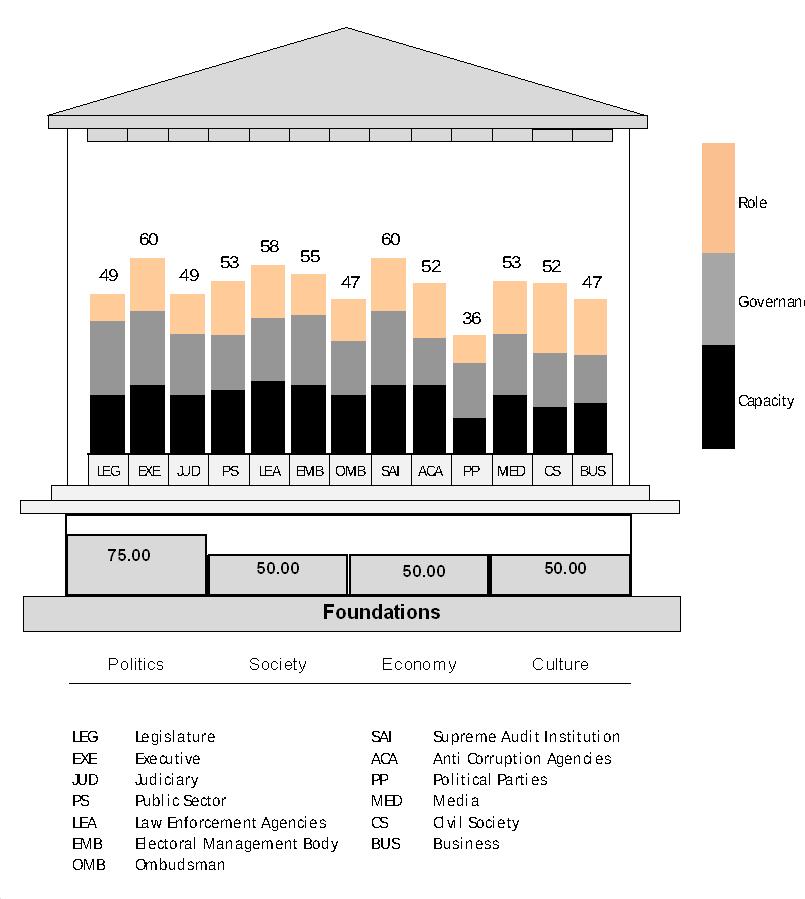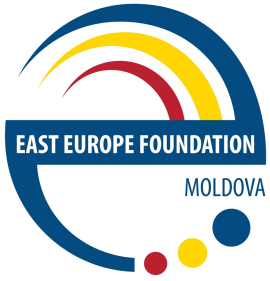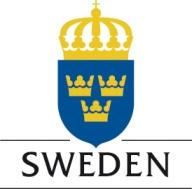
Chişinău, 29 July 2014
A new report assesses vulnerability of institutions in Moldova to prevent and fight corruptio
Efforts to improve democratic government in Moldova were undermined by corrupt political parties and the judiciary system, according to a new National Integrity System Assessment report launched on the 29th of July 2014 in Moldova and produced in the framework of the EU funded regional project ‘National Integrity System Assessment in European Neighbourhood East region’.
The report states that since having a democratic government for the last four years, the Republic of Moldova has improved in international rankings of free elections, democracy, civil society activism, media freedom, good governance, judiciary freedom, business environment, and competitiveness. Systemic corruption, however, remains a major problem. Moldova scores a mere 35 on Transparency International’s Corruption Perception Index of 2013 (where 0 means highly corrupt and 100 least corrupt). The report also shows that all 13 pillars are vulnerable to corruption, especially political parties, parliament, and the judiciary branch. Transparency of political parties and electoral campaign funding is still an issue.

The Moldovan government’s efforts to increase transparency during the decision-making process and to improve access to information on foreign technical assistance have been overshadowed by several corruption related scandals in the banking system. Oligarchs who have built considerable parts of their business via unfair advantages exert influence over parliament and seek to control the judiciary. Reform of the judicial branch has seen some progress. In the past six months, about 10% of judges resigned in the new, less tolerant to corruption environment, however the reformation of the Prosecution system is delaying.
“The creation of the National Integrity Commission has been a positive step forward [and] has enabled public servants to be held to accountable for conflicts of interest. However, the Commission remains weak as it cannot put public servants who receive illegal income behind bars,” says Lilia Carasciuc, Executive Director of Transparency International Moldova who implements the project in the country
The report recommends accelerating judiciary reform and prosecution system reform, increasing transparency of political parties’ funding, and the consolidation of professional and technical capacities of the National Integrity Commission to supervise income and assets declarations of public servants and enforce its conflict of interest policy. An improved National Integrity System in Moldova should be an integral part of the National Anti-corruption Strategy, justice sector reform, and the strategy and the government program for 2015-2019.
Given the ambitious pro-European aspirations of the Moldovan government and civil society, with the support and close oversight provided by European Union, and by applying the more-for-more principle, which is the basis of the renewed European Neighborhood Policy, Moldova has an opportunity to demonstrate its ability to withstand corruption and grow as a strong democracy, with a sustainable and competitive economy.
Background
The report National Integrity System Moldova has been produced by Transparency International Moldova in the framework of the Eastern partnership regional program financed by the EU. One of its main conclusions is the need for deep reforms in the region in 13 vulnerable fields: the legislative, executive, and judiciary branches, as well as the public sector, police, Central Election Commission, the institution of ombudsman, the Court of Accounts, anti-corruption bodies, political parties, mass-media, civil society, and business. The project covers the countries from the Eastern Partnership region Armenia, Azerbaijan, Georgia, Moldova and Ukraine. It runs from March 2013 to February 2015.
The report has been funded by the European Union and the East Europe Foundation from the resources of the Swedish Government and the Ministry of External Affairs of Denmark.
For more information:
Website of the report: http://www.transparency.org/whatwedo/pub/moldova_national_integrity_system_assessment_2014
Website of TI Moldova: http://www.transparency.md/
Website of the EEAS (on the European Neighbourhood Policy): http://eeas.europa.eu/enp/
Website of the EU: http://europa.eu/index_en.htm
EU Neighbourhood Infocentre: www.enpi-info.eu
 |
 |
 |
 |
 |
|
A project implemented by TI-Moldova |
98, 31 August 1989 Str., of. 204, MD-2004, Chisinau, Moldova Tel/Fax: (+373-22) 23-78-76 Tel: (+373-22) 20-34-84, 20-34-85 E-mail: office@transparency.md http://www.transparency.md |
The European Commission is the EU’s executive body.
“The European Union is made up of 28 Member States who have decided to gradually link together their know-how, resources and destinies. Together, during a period of enlargement of 50 years, they have built a zone of stability, democracy and sustainable development whilst maintaining cultural diversity, tolerance and individual freedoms. The European Union is committed to sharing its achievements and its values with countries and peoples beyond its borders”. |
